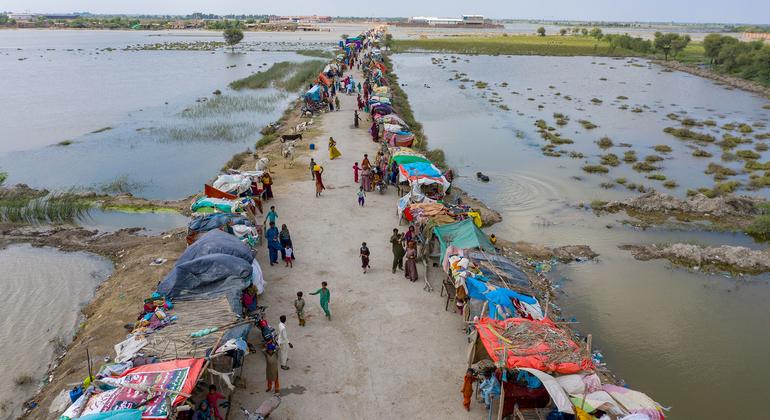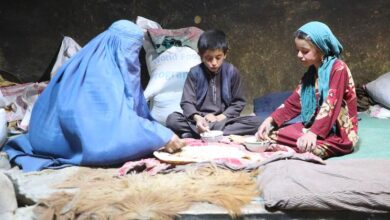Pakistan: To prevent ‘second wave of death’, UN raises call for funding to $816 million |

Julien Harneis, Humanitarian Coordinator for Pakistantold journalists in Geneva on Monday that there will be an increase in the incidence of childhood illnesses, outbreaks of diseases such as malaria and dengue fever and an increase in malnutrition, unless support is provided.
The Government needs support to strengthen health, nutrition, water and sanitation services across the affected areas of the country, he said.
Floods have affected 33 million people, and is reported to have killed nearly 1,700 people, with 20.6 million people currently in need, according to the revised United Nations Flood Response Plan. published on Tuesday.
About 9.5 million people are being targeted for life-saving assistance under the expanded response plan, which runs until the end of May next year.
According to government data, about 84 districts across the country have been hit by “disasters”, mainly in Balochistan, Sindh and Khyber Pakhtunkhwa. At least 7.9 million people have been displaced, with nearly 600,000 living in relief camps. There are an estimated 800,000 refugees, including about 400,000 children.
“We need all these funds and we need them fast,“Mr Harneis added that an international assistance conference will be held later this year to seek more funding for reconstruction and recovery.
‘Public health disaster’ shows up: Tedros
WHO Director General, Tedros Adhanom Ghebreyesus, say that around10% of medical facilities were damaged in the flood.
“The loss of more than 1,500 people is tragic – however, it is remarkable that many others have not perished,” he said, adding that it was due to “Early warning decisions and immediate response actions taken by the Government and local communities. “
The Pakistani government is “overburdened and needs our support,” Tedros said.

A nine-year-old girl carries water from a tree stump in a flooded village in Sindh province, Pakistan.
“The The water has stopped rising, but the danger has not. We are on the brink of a public health disaster. “
He said more than 2,000 women in flood-affected areas give birth every day, most in unsafe conditions.
Emphasis on people
“More lives than those killed in floods could be lost in the coming weeks if we don’t mobilize greater support for Pakistan,” added the WHO chief, calling on the international aid community to take an integrated approach, “with less emphasis on the work of individual agencies and more on the needs of the people.” .
He said it’s important to remember that “unless we tackle the existential threat of climate change, we’ll respond to emergencies like this and worse more often.”




